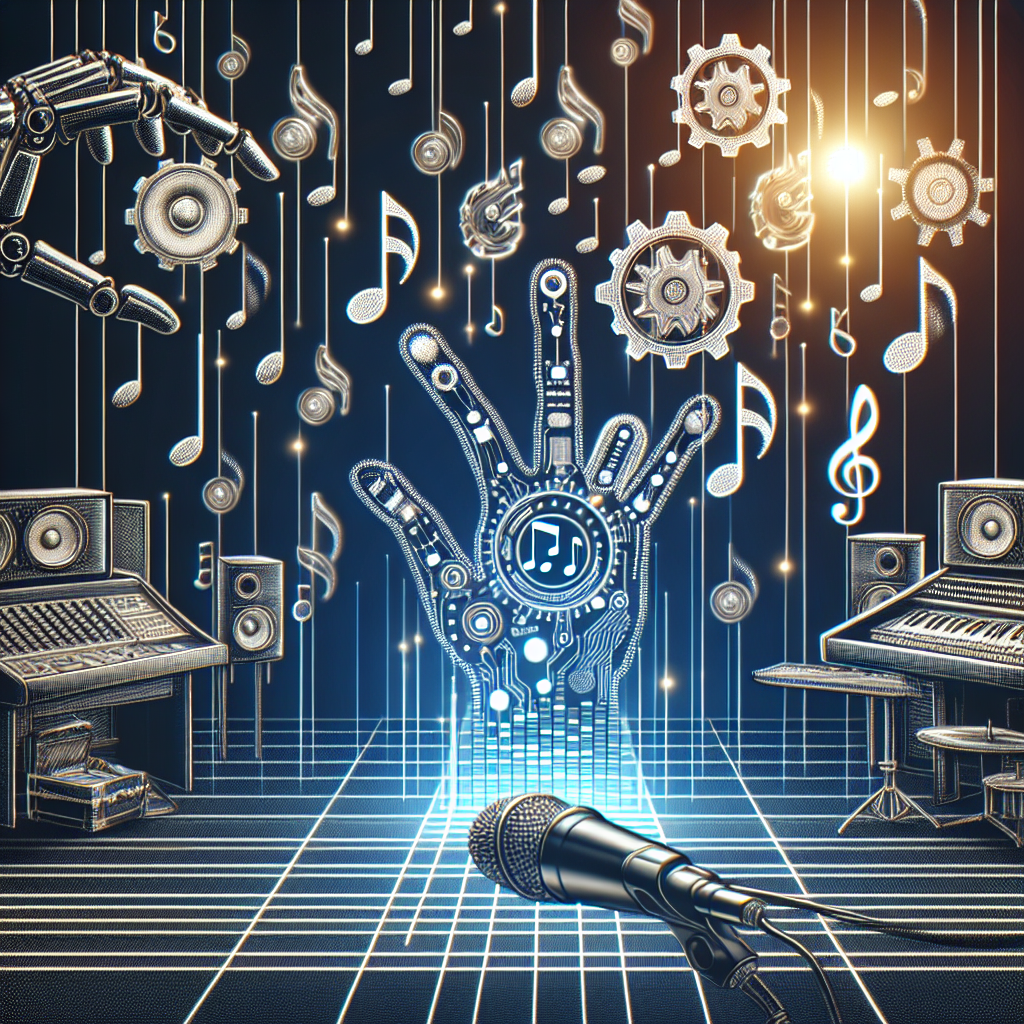The Ethics of AI in Music Creation
Artificial intelligence has made significant advancements in various fields, including music creation. AI-powered tools and algorithms are being used to compose music, generate lyrics, and even mimic the style of famous musicians. While AI has the potential to revolutionize the music industry, it also raises ethical concerns that need to be addressed.
One of the main ethical concerns surrounding AI in music creation is the issue of ownership and originality. Who owns the music created by AI algorithms? Can AI-generated music be considered original, or is it merely a copy of existing works? These questions have sparked debates among musicians, legal experts, and ethicists.
Another ethical concern is the impact of AI on human creativity. Some argue that AI tools can enhance human creativity by providing new ideas and inspiration. Others worry that AI could devalue human creativity by replacing human musicians with machines. This raises questions about the role of AI in the creative process and the potential consequences for the music industry.
Privacy and data security are also significant ethical issues when it comes to AI in music creation. AI algorithms require vast amounts of data to learn and generate music. This raises concerns about the privacy of the data used, as well as the security of the systems that store and process it. There is also the risk of bias in AI-generated music, as algorithms may be trained on data that reflects human biases and prejudices.
Furthermore, the use of AI in music creation raises questions about the impact on the music industry and job market. Will AI tools replace human musicians and composers, leading to job losses and economic disruption? Or will AI create new opportunities for artists to collaborate and innovate? These questions highlight the need for ethical guidelines and regulations to ensure a fair and sustainable future for the music industry.
FAQs:
1. Is AI capable of composing music on its own?
AI algorithms have made significant advancements in music composition and generation. While AI can create melodies, harmonies, and rhythms, it still requires human input and oversight to produce high-quality music. AI tools are often used as creative aids by musicians and composers, rather than as standalone creators.
2. Who owns the music created by AI algorithms?
The ownership of AI-generated music is a complex legal issue that has yet to be fully resolved. In some cases, AI-generated music may be considered a collaborative work between the AI system and the human user who trained it. In other cases, the ownership may depend on the specific terms of the AI tool’s license agreement. It is recommended to consult with legal experts to clarify ownership rights in AI-generated music.
3. What are the ethical concerns related to AI in music creation?
Some of the main ethical concerns include ownership and originality, human creativity, privacy and data security, bias in AI-generated music, and the impact on the music industry and job market. These issues raise important questions about the role of AI in music creation and the need for ethical guidelines and regulations to ensure a fair and sustainable future for the industry.
4. How can AI be used ethically in music creation?
To use AI ethically in music creation, it is important to prioritize human creativity and input. AI tools should be used as aids to enhance the creative process, rather than as replacements for human musicians. Transparency and accountability are also essential to ensure that AI-generated music is free from bias and reflects the values of society. Additionally, data privacy and security measures should be implemented to protect sensitive information used by AI algorithms.
In conclusion, the ethics of AI in music creation are complex and multifaceted. While AI has the potential to revolutionize the music industry, it also raises important questions about ownership, originality, human creativity, privacy, bias, and the future of the industry. By addressing these ethical concerns and implementing guidelines and regulations, we can harness the power of AI to create innovative and inspiring music while upholding ethical standards and values.

